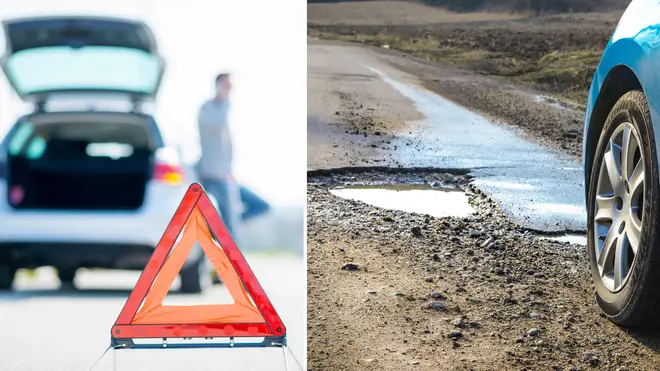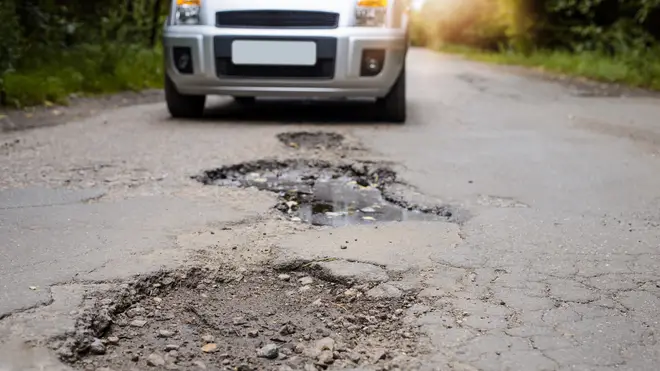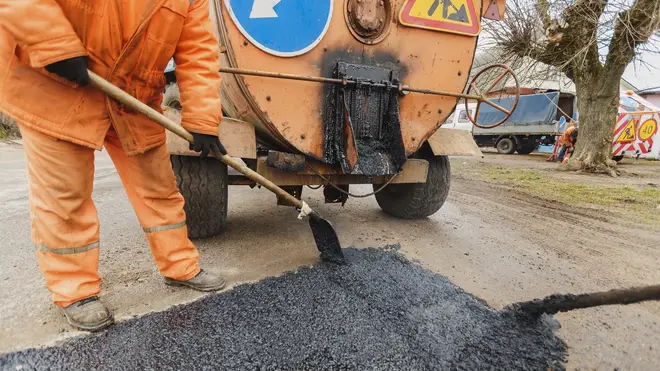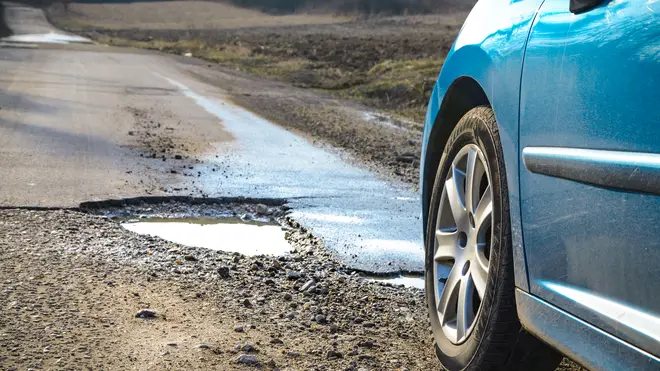Pothole-related breakdowns hit three year high
14 January 2022, 14:08

Potholes can cause broken suspension springs, distorted wheels and damage to the shock absorbers of a vehicle.
Listen to this article
Pothole-related breakdowns have hit a three year high, new figures show.
On average, around 27 cars are breaking down every single day thanks to potholes caused by damp weather.
According to the RAC, more than 10,000 breakdowns are caused by potholes every year, with the significant road issue causing broken suspension springs, distorted wheels and damage to shock absorbers.
It isn't only the figures that show the growing pothole problem across the UK, with the RAC Report on Motoring finding that 46 per cent of people think the quality of roads is a problem - up 38 per cent from the year before.
- Woman's crafty hack to defrost car windscreen hailed a 'game changer'
- Why you should never let your child wear a winter coat in the car
- Drivers face £40 fine for using their engine to defrost car windscreens

And it is no wonder, with the RAC Pothole Index also revealing that Brits are now one and a half times more likely to break down after hitting a pothole than they were six years ago.
The RAC's head of roads policy, Nicholas Lyes, said of the news: "Potholed roads are a menace, not a mere annoyance – they can cause thousands of pounds of unnecessary damage to drivers’ vehicles, make using our roads uncomfortable and can be a serious road safety hazard for anyone on two wheels.
"It is almost entirely avoidable if roads were maintained properly.
"With drivers contributing so much in terms of tax to the Government the very least they deserve are roads that are fit-for-purpose."

This comes after analysis of the Local Government Association found that annual funding for more than 9.5 million pothole repairs has been removed from council budgets.
In October 2021, it was revealed that councils in England were receiving £1.2million less than the year before each for road repairs, a £399million reduction in total.

David Renard, the Local Government Association's transport spokesman, said: "Councils are working hard to keep our roads safe and resilient, repairing potholes as quickly as they can.
"However, it would already take £10bn and more than a decade to clear the current local roads repair backlog, with the COVID-19 pandemic and subsequent cancellation of key planned works risking extending this backlog further.
"With long-term and consistent investment in local road maintenance in the spending review, councils can embark on the widespread improvement of our roads that is desperately needed, to the benefit of all road users up and down the country, including cyclists."
Read more:
- Drivers who do not get 'sufficient sleep' before long journeys could face a penalty
- Drivers face £200 fine for changing music in car under new law
- New police detectors to catch you when you're using your mobile phone while driving


































